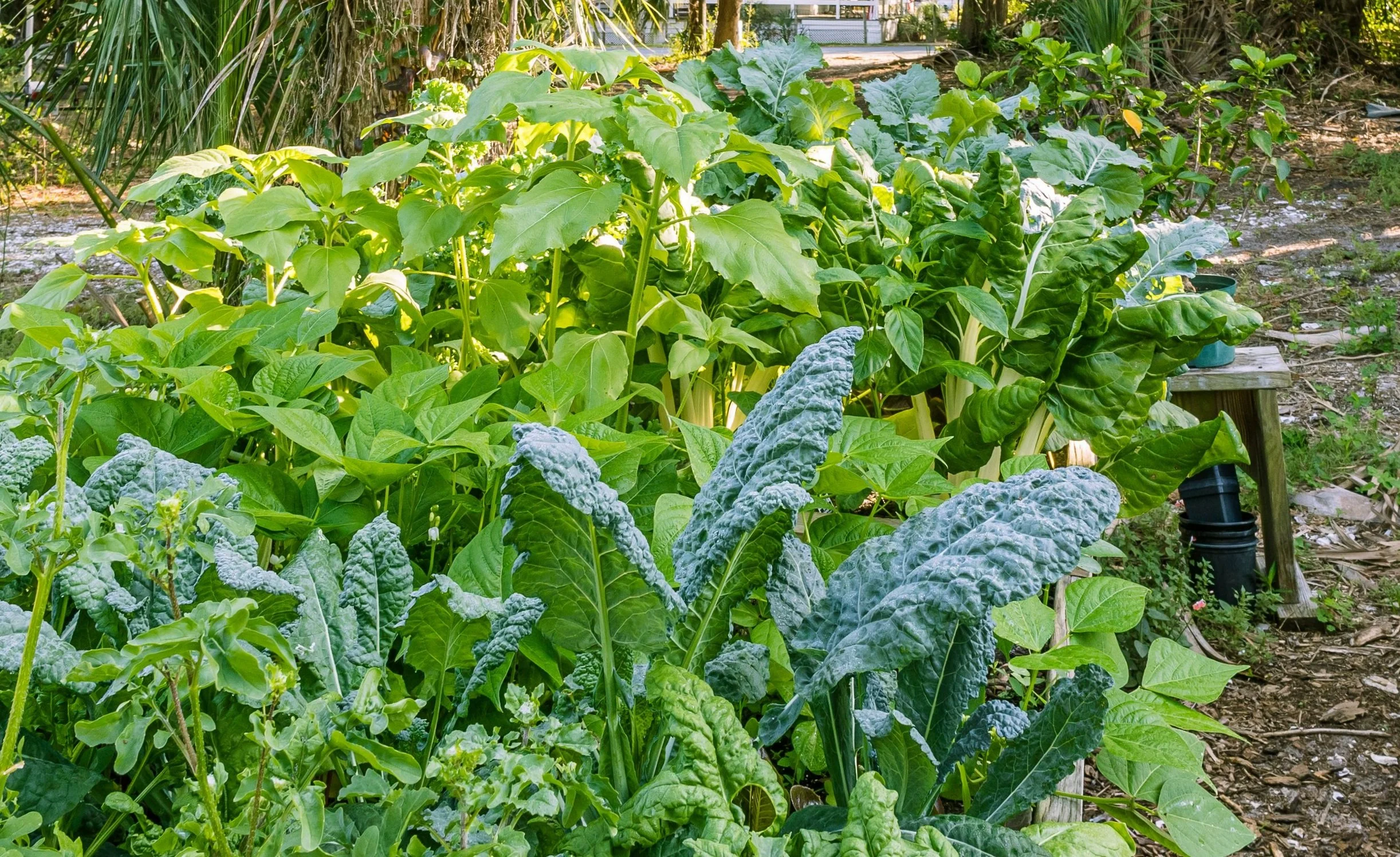Foods To Grow In Partial Shaded Areas
Plants grown for their edible leaves or roots are some of our best options for food grown in more shaded or filtered light areas. Partial shade areas offers a mirco-climate that behaves differently than full sun conditions. Watering for instance will be different for partial shaded areas as there is less evaporation from sun and heat and therefor soil in these areas often holds water for longer periods of time. There maybe also less air flow if under a canopy and there are changes in temperature. These are ALL great insights for us to keep observing & documenting when growing in different micro-climates like partial shade.
Here is a start of some of the best foods to grow in partial shaded areas: (any area under 6 hours of sun a day would be considered partial or shaded area)
Vegetables Aprox 6+ hours of sun per day
Asparagus (likes sun but will grow in partial)
Broccoli
Brussel sprouts
Cabbages
Cauliflower
Chives (likes sun but will grow in partial, slower)
Collard Greens
Garlic (likes sun but will grow in partial)
Leaks
Potatoes (will yield smaller tubers but worth it )
Rhubarb
Watercress (likes sun but will grow in partial)
Vegetables Aprox 5- 6 hours sun per day
Beans
Beets
Bok Choy
Chard
Carrots
Celery
Horseradish
Kohlrabi
Mizuna
Onions
Peas
Parsnip
Rutabagas
Turnips
Pok Choy
Vegetables Aprox 4 Hours
Arugulas
Kale
Lettuces
Mustard Greens
Radishes
Spinach
Fruits For Partial Shade
Currants
Elderberries
Gooseberries
Hardy Kiwi (Vining plant, very hardy, edible fruit)
Lingonberry (Understory bush)
Mulberries
Muscadines (berry variety)
Pears
Pawpaw (Understory fruit tree that’s native to North America.)
Raspberries
Herbals For Partial Shade
Chicory
Chives
Dandelion
Horsetails
Ginseng
Goldenseal
Mint
Oregano
Parsley
Rosemary
Sage
Thyme
Valerian
Others
Mushrooms (on mulch or logs)
*Note We don’t have to keep all of our shade-loving vegetables in their own areas, think about how you can interplant or build polycultures, sowing them under taller plants. For example, basil, chives, and radishes and lettuces can grow easily under tall tomato plants. This not only offers shade but shields some plants from some heat or offer plants soil benefits!

